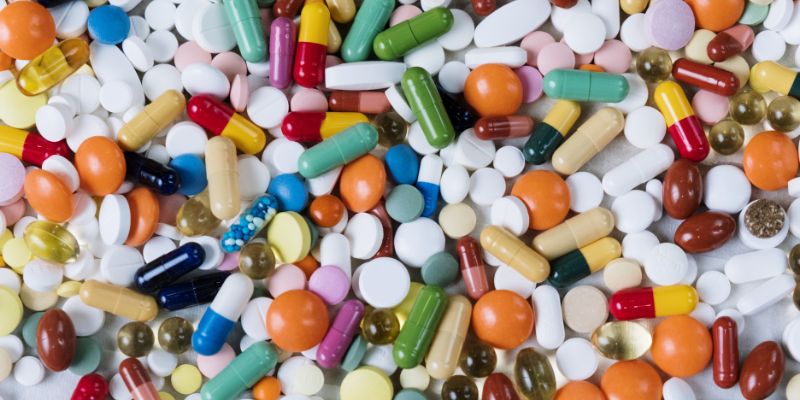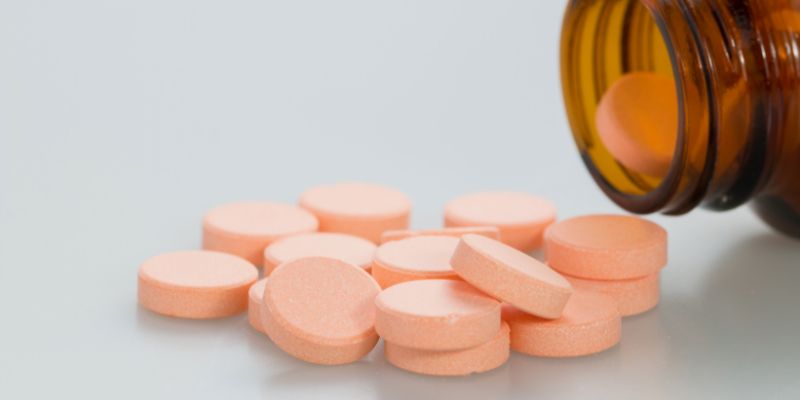Opioid Use Disorder Treatment: Doctor-Recommended Drugs and Therapy You Should Know
Nov 07, 2023 By Madison Evans
Addiction to opioids is a serious, debilitating illness. The effects on the brain can be long-lasting. The good news is that you may reduce your risk of developing serious health problems from opioid addiction by getting help as soon as possible.
Getting clean from prescription drug misuse is difficult and requires more than determination; it is possible. Medication and therapy can help you through what could be a lengthy process. Opioid addiction is treated similarly to prescription drug addiction, as street fentanyl is opioids.
Opioid addiction causes alterations in neural circuitry. It has a disruptive effect on the neural pathways that regulate emotion and reward. In addition, Inappropriate use of opioids, whether through a prescription or on the street, profoundly impacts virtually every system in the body. Withdrawal symptoms are common when opioids are suddenly stopped.

What Is An Opioid?
Natural, semi-synthetic, or synthetic opioids are painkilling substances that work by binding to and blocking the activity of opioid receptors throughout the body and brain. Opioids and opiates are often used interchangeably; however, an opiate must be a naturally occurring chemical, such as morphine, obtained from the poppy plant, whereas an opioid can be naturally occurring or synthetically produced.
To simulate the effects of naturally occurring opiates like morphine, synthetic and semi-synthetic opioids are manufactured in a lab. They are synthesized to be more powerful than naturally occurring opiates.
Acute pain, chronic pain, active-phase cancer therapy, palliative care, and end-of-life care are all intended uses for prescription opioids. Opioid prescription drugs are used by many people with medical supervision to control their symptoms. Prescription painkillers include opioids like oxycodone and hydrocodone and drugs like codeine and morphine.
Methadone, fentanyl, pethidine, tramadol, and carfentanil are all examples of synthetic opioids. Opioids dull pain but can have side effects, including sleepiness, haziness, euphoria, nausea, and constipation. In large enough quantities, they can impair breathing and even cause death.

Why Do People Become Dependent On Opioids?
There is still a lack of understanding about what factors predispose certain people to opioid addiction while others do not. Opioids often reduce pain and, in certain cases, provide euphoria or increased well-being. One possible indicator of susceptibility to opioid addiction is the occurrence of euphoria following opioid use.
Even while taking opioids as prescribed, some patients experience an overwhelming sense of pleasure. In the beginning stages of developing an opioid use problem, individuals may experiment with opioids due to their euphoric effects. When the good feelings wear off, it's because the drug is wearing off.
As the situation worsens, the individual may begin to use opioids more often or at greater dosages to maintain the feeling of euphoria or prevent the onset of withdrawal. The probability of getting addicted to an opioid rises with repeated use.
Time to physical dependence varies from person to person but averages a few weeks. Taking an opioid for a day or two isn't an issue. However, research suggests that even the first dosage might have physiological repercussions that leave users prone to developing an opioid use disorder.
Opioid Use Disorder And Opioid Dependence
Opioid dependency is simply the occurrence of tolerance to or withdrawal from opioids. Tolerance refers to a decline in response to a given dosage or the development of a demand for increasingly large doses to get the same effect. To withdraw from opioids is to experience nausea, diarrhea, and a runny nose.
Repeated instances of opioid consumption characterize opioid use disorder despite negative consequences. When confronted with drug-related issues, the individual struggles to reduce or abstain from use.
Both physical and psychological dependency on opioids have been linked to opioid use disorder. When one's thoughts, feelings, and actions revolve around their drug usage, they have developed a psychological dependence on it and feel compelled to use it despite its detrimental effects on their lives.
Symptoms
Behavior That Is More Intense Or Dangerous
When someone takes opioids chronically despite the negative effects on their well-being, safety, financial stability, or relationships, we call it an addiction. Opioid use disorder is characterized by a person's inability to limit their opioid intake and developing more problematic behaviors related to obtaining and using opioids.
Physiological Reliance
It is a change in a person's physical condition as a result of their use of a drug. Withdrawal symptoms include cravings and sweat when a person stops using a substance.
It's crucial to realize that one can develop a physical dependence on opioids even if they don't misuse them. Someone with cancer and persistent pain may be dependent on opioids medically without becoming addicted to them.
Topioid Use Disorder Treatments
Only around one-quarter of patients with opioid use disorder get the specialized therapy they need, despite the availability of effective options. Medications for opioid use disorder are an evidence-based treatment who suffer from opioid use disorder and are widely known as the Gold Standard of care.
Although medicine may play a significant role in therapy, counseling, and behavioral treatments can be beneficial. Opioid withdrawal, the euphoric benefits of opioids, and cravings can all be treated with medication. Although these drugs do not cure addiction, they make using other treatments more secure and less likely to result in relapse or prolonged substance misuse.
Treatment In Hospital
Opioid use disorder is rarely treated in isolation in hospitals. People with drug misuse disorders may seek help in hospital emergency rooms in physical or mental pain. The standard practice in hospitals is to examine, determine the patient's most pressing need, and then refer them for treatment. Patients with severe medical conditions, such as opioid use disorder, may be admitted to the hospital.
Conclusion:
The best therapy for OUD is using a medicine approved by the FDA. Since each patient has unique treatment requirements, a combination of authorized drugs and behavioral treatments may be necessary to help them reach their goals. The opioid crisis can be slowed by increasing access to qualified healthcare practitioners, raising public knowledge about the efficacy of opioid use disorder medication, and covering all necessary services.







